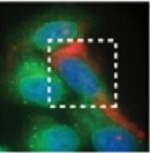 |
| Shigella affects 90 million people each year.--Courtesy of NIH |
Shigella--a major cause of diarrhea and dysentery--affects about 14,000 people in the United States every year and roughly 90 million worldwide. National Institutes of Health-funded researchers aim to put a stop to the bacterial illness, found most commonly in children, with two related vaccine candidates.
Researchers began an early-stage human clinical trial of the vaccine candidates to evaluate the vaccines for safety and their ability to induce immune responses. The trial includes 90 healthy adults ages 18 to 45 and will take place at Cincinnati Children's Hospital Medical Center. The candidates--WRSs2 and WRSs3--already proved themselves in guinea pigs and nonhuman primates.
Like dengue, Shigella has four subtypes. The live, attenuated vaccine candidates target Shigella sonnei, the subtype causing most of the outbreaks in the developing world. Those participating in the trial will be split into 10 groups of 8, with each group getting either WRSs2 or WRSs3. The remaining 10 individuals will receive a placebo.
"It seems that Shigella bacteria know our immune system better than we do," William Alexander, a program officer in NIAID's Enteric and Hepatic Diseases Branch, Division of Microbiology and Infectious Diseases, said. "They've become very good at evading the human immune response and causing significant illness, so developing vaccines and better treatments is critical."
In 2011, the World Health Organization noted Shigella was among one of the latest diseases to grow resistant to drugs. The illness is generally treated with antibiotics.
NIH isn't the only group aiming to develop a Shigella vaccine. Pharma giant GlaxoSmithKline ($GSK) paired up with GlycoVaxyn late last year to develop new anti-bacterial vaccines. GlycoVaxyn's lead vaccine target is Shigella dysenteriae.
- read the NIH release